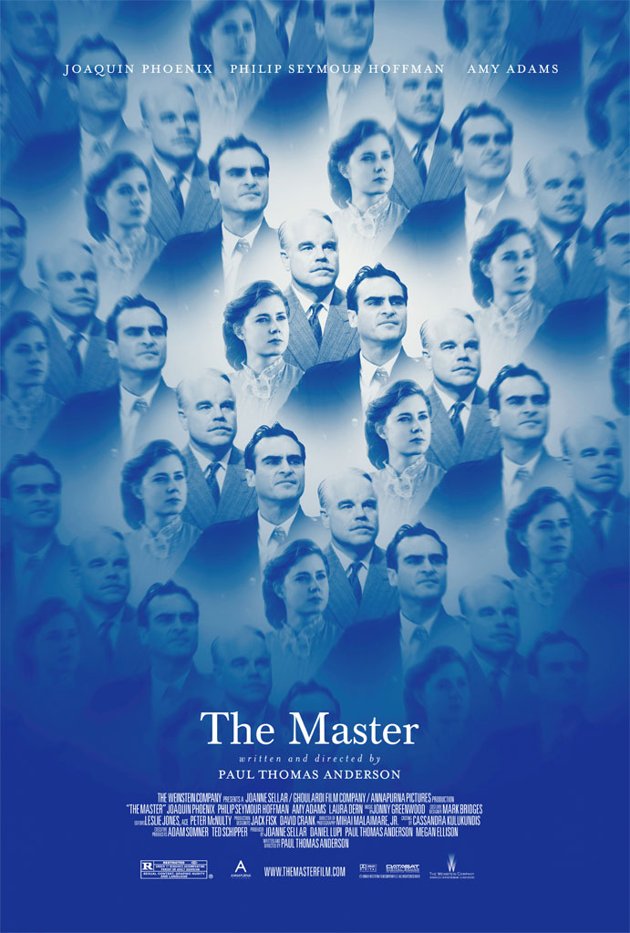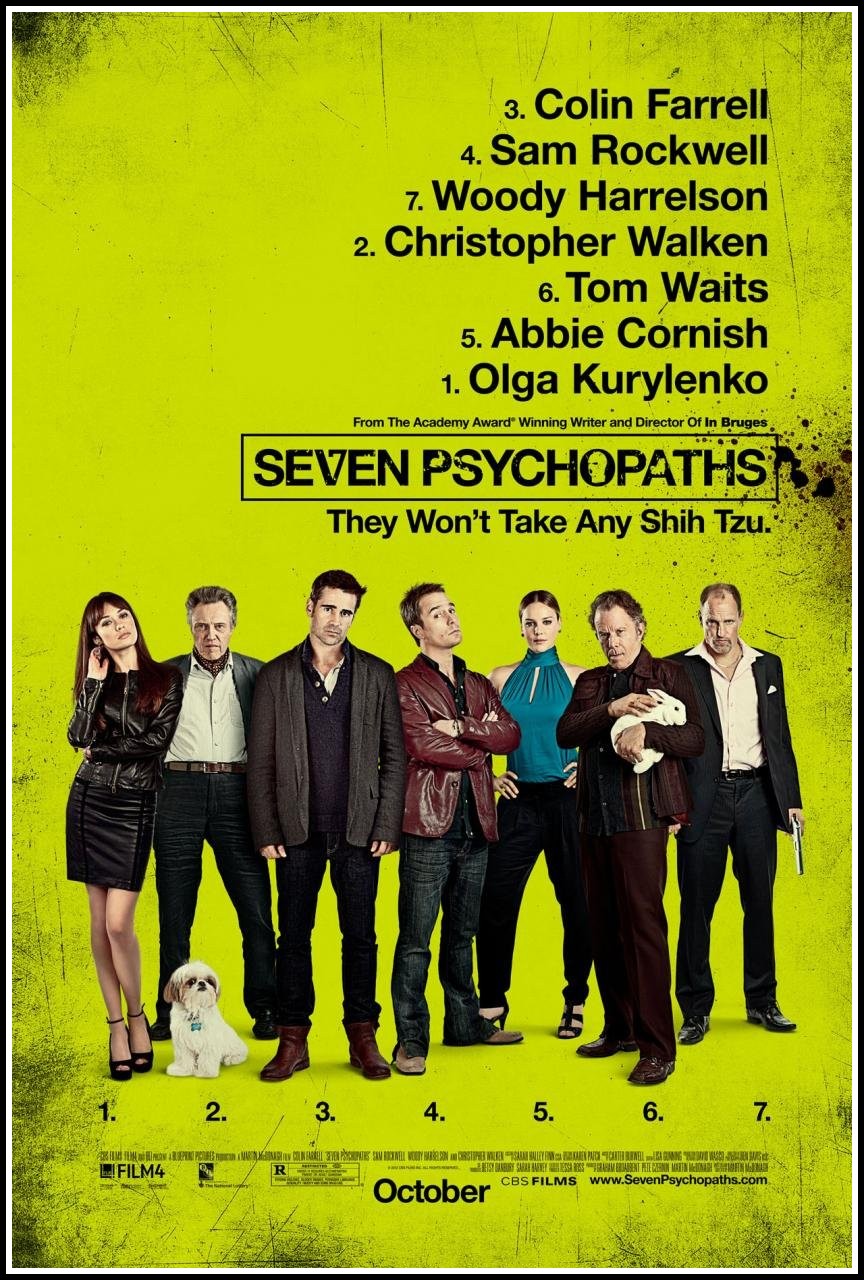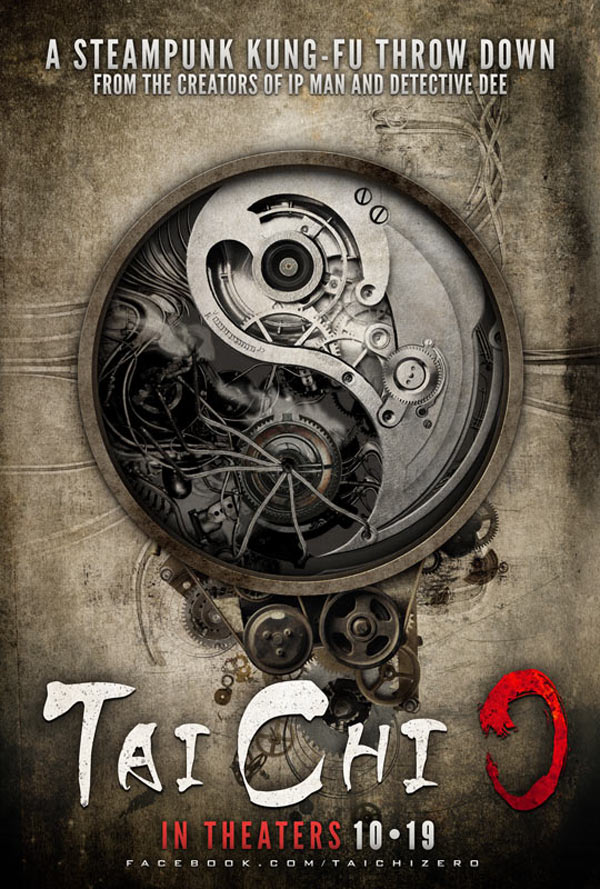
The Master (2012, directed by Paul Thomas Anderson)
Oh boy.
This was, by far, the film I was most looking forward to at this year's TIFF. Paul Thomas Anderson has never made a bad film - hell, the man's never made anything less than a great film. And given what the film was, given that it supposedly did to L. Ron Hubbard what Citizen Kane did to William Randolph Hearst, given that PTA shot it in 70 mm, there was simply no way I was missing it. Eris, in her finite capricious wisdom, even graced me with a ticket to the public premiere at the relatively glorious Princess of Wales, a space normally reserved for live theater that only shows movies during the film festival.
On the surface, The Master is everything you would want and expect from a PTA film. It looks exquisite, moving from a blue ocean churning behind a ship to the Arizona desert and making everything look glorious. It does as fantastic a job of recreating the early '50s as Boogie Nights did of recreating the '70s and early '80s. The performances are uniformly outstanding, with Phillip Seymour Hoffman firing off what will probably be acclaimed an Oscar-worthy turn as the charismatic, insecure charlatan/guru (those two have always been opposite sides of the same coin) Lancaster Dodd, Joaquin Phoenix tearing into his role as Freddy, the immovable object to Hoffman's irresistible force, and Amy Adams matching those two blow for blow as Peggy, the power behind Hoffman's throne (and Amy, if you're reading this: you need to do Lady MacBeth. Like, right now. I will pay any price, airfare included, to sit in the audience and watch you perform the Damned Spot monologue on stage.)
And yet... when the screen cut finally to black, I did not have that immediate "OMG that was the greatest thing I'd ever seen" reaction I've gotten from just about every other PTA movie. In fact, I was left wondering what the point of it all was. The Master is a film about unenlightened people making a show of striving for enlightenment, so while that creates an opportunity for some acting fireworks it results in none of them really having any kind of character arc. Hoffman ends the film in the same place he started it, offering freedom to the weak while slowly putting them in chains. Adams is still the same driven woman she was at the beginning, equal parts dutiful wife and puppet master. And Phoenix... his Freddy is everything Hoffman's "Cause" decries, a laughing, fucking, drunken monkey of a man who cares nothing for bettering himself. All he really learns, by the end, is how to mimic Hoffman's attempts to indoctrinate him and turn them into a juvenile sex game.
Don't get me wrong. There's a lot going on in The Master, on the surface and below it. The film does a solid job of filling in the early history of Scientology under a thin veneer of fictionalization, while the interplay between Freddy, Lancaster and Peggy so obviously represents the relationship between id, ego and superego that the Freudian... Christ, I can't even really call it 'subtext' since it's so transparent - that Freudian reading supplies a bigger fuck you to Hubbard and his legacy than anything in the actual plot of the film. Like I said, every individual part of the film, looked at in isolation, has no obvious flaws. And yet... and yet.
Maybe it's that lack of character development that creates a distance that I've never felt before in a PTA film. There was no emotional distance between me and Daniel Plainsview or Dirk Diggler. Maybe it was the lack of big moments that left me feeling wanting. There are no pudding-fueled trips to Hawaii in The Master, no rains of frogs. Nobody gets beaten to death with a bowling pin. All we get that comes close is a jailhouse shouting match. Or maybe it was the curious divide between Phoenix's overtly Method-driven style of acting, rooted so strongly in his physicality from his clenched jaw to the apparent chronic back condition that seemed to inform his movements, and Hoffman and Adams' more organic styles that prevented me from connecting fully with the movie. All I know is that when the credits started rolling, I felt the space between myself and the screen very, very keenly. I felt like I'd been lectured at, not engaged.
The Master is a film that will most likely be acclaimed as great, and I don't really have a problem with that. This isn't some banal Ron Howard piece of shit Oscar bait that folks will gush over because it's non-threatening. But, barring some big epiphany striking me, this is going to be the Paul Thomas Anderson film I revisit the least down the road.
^^^^^^^^^^^^

Seven Psychopaths (2012, directed by Martin McDonagh)
Once upon a time in the land of Hollywood, after the usurper king Quentin the Loquacious had unleashed Pulp Fiction on the world, a host of lesser talents tried to make star-studded ensemble crime comedy/drama/thrillers with titles like Six Heads and Two Days in Duffel Bag Valley While You're Dead in order to carve out their own little fiefdoms. They were pretty much uniformly terrible, and mostly disappeared without leaving much of a trace in the collective unconscious aside from a vague sense of nausea at the thought of ever watching another hackneyed star-studded ensemble crime comedy/drama/thriller again.
So, naturally, the demented mind behind In Bruges decided to make his next film a star-studded ensemble crime comedy/drama/thriller. Only McDonagh made it mostly a comedy, and a meta-comedy making fun of star-studded ensemble crime comedy/drama/thrillers at that, and that decision pretty much saves the film.
Now, that's not to say Seven Psychopaths is a great film, or really even a very good film. The "plot" involves a drunken sot of a screenwriter named, ahem, Martin (played with his usual slightly ditzy charm by Colin Farrell) who's trying to write a movie called, ahem, Seven Psychopaths but is having trouble finishing it because he's kind of sick of writing about violence and death and just wants to know why the psychopaths can't talk through their differences instead of resorting to gunfire and bloodshed. His best friend Billy Bickle (a perfectly loopy Sam Rockwell), who wants to co-write the script with him, keeps trying to push him forward by pointing him towards some real-life psychos including a masked lunatic who kills only mid- to high-level members of the Italian mafia or the yakuza, a man who grew weary of being part of a Bonnie and Clyde-meets-Dexter couple who killed serial killers (Tom Waits in a fantastic little extended cameo) and a Quaker who torments the man who murdered his daughter into committing suicide and then follows him to hell by slitting his own throat. I imagine you've spotted a pattern there. Billy is in the dognapping business with Hans (Christopher Walker being, well, himself), but they run afoul of the head of the crime family (an over-the-top Woody Harrelson) Psychopath #1 has been targeting when they take his dog by mistake. Paths cross, mayhem ensues, bodies pile up etc etc etc.
If that sounds like a dumbed-down Adaptation, well, it kinda is, right down to Billy's insistence on getting "his ending". But Seven Psychopaths manages to carve out an identity of its own, so that the similarities don't make it seem like a retread. McDonagh, as with In Bruges, has written some crackling dialogue and handed it over to a cast that knows what to do with it, so even if the story doesn't really go anywhere and the big reveals get telegraphed from a mile away the movie still plenty entertaining enough to carry you past all the rough edges and slow spots.
I feel like I should dismount with some sort of labored "seven psychopaths out of 10!" closing line here, but honestly it wouldn't rate more than six and a half. Whatever. Seven Psychopaths is an entertaining, amusing time waster - no more, no less.
^^^^^^^^^^^^

Tai Chi 0 (2012, directed by Stephen Fung)
This movie is... well, there's... it just... I mean, fuck.
I don't want to simply rehash the tweet I sent out right after seeing it, but it's really the best description I've got. Tai Chi Zero is the crazy, crazy baby of Kung Fu Hustle and Scott Pilgrim. Ostensibly it's a Chinese historical epic about Yang Lu Chan, the man who popularized tai chi, and tells the standard tale of his quest to learn the secrets of the style and master them, but at the same time it's a batshit, steampunk-infused story of good versus evil, tradition versus progress, and xenophobia versus inclusiveness delivered along with a visual maelstrom of comic book elements. Yes, I said steampunk. Chinese steampunk. Deal with it.
This is most giddily ridiculous film I've seen in a long time. It feels like almost every frame gets jazzed up with something. I suppose it's become a bit old hat to superimpose a credit when a character appears on screen for the first time, but when have you seen superimposed credits that list not only the character and the actor playing them, but also why the actor is in the film? (For example, the actress who plays Sister Mahjongg apparently coached the 2008 Italian Olympic Wushu team. I looked it up - they scored a silver. Good job, Sister Mahjongg!) When tai chi techniques get used, charts pop up showing you the appropriate foot placement and movements so, I guess, you can practice them yourself. And when our hero finally arrives at the tiny mountain village that's the home of the fabled tai chi practitioners, a handy legend appears denoting what all the buildings are, and even helpfully points out a flagpole. It's hilarious, and absurd, and awesome.
The fighting is fantastic, no surprise when you have a cast of Olympic coaches and '70s martial arts film legends and whatnot. Fung shows it in small doses though and is liberal with the wire work and effects, sometimes putting them to the most ridiculous uses. 2008 Olympic Wushu overall champion (hmm, 2008 must have been a good year for wushu) Yuan Ziaochao makes his film debut in the lead, and plays Yang Lu Chan as, well, as an idiot. Half his dialogue seems to be him saying "What the hell?" at stuff that really shouldn't require that much explanation. He's great at it though, giving Chan a naivete and optimism that carries him through when his intellect and martial arts prowess fail him. If Jackie has an heir this is probably him: Yuan seems to have a clear gift for comedy along with his fighting chops. And Hong Kong model/actress Angelababy shines as Chan's main foil and inevitable love interest (sort of), the daughter of the legendary tai chi master Chen, who is played with gruff but lovable charm by Tony Leung Ka Fai.
There are two really awful things about seeing Tai Chi Zero though. One, it's only the first half of the story. Tai Chi Hero is still apparently in post-production, so the plot just stops dead at the end of the movie and it's kind of cruel because there's about to be a big wedding and everything and I want to see how it ends right the hell now now NOW. They do throw a trailer for Tai Chi Hero in the credits though, so that's something. Peter Stormare even shows up in it, because why not. Also, in China they get to see this insane thing in Imax 3D, while we were stuck with a 2D print over here. Given what Fung does with the other technical elements of the film I can only imagine what his mad genius did with the 3D.
Look, Tai Chi Zero has major pacing problems and the music could be better and the English dialogue is of course stilted, but you won't care. You simply won't care. It's too awesome.
It's just... ridiculous. Stupid, and ridiculous, and an assload of fun.
Follow me, and give me audience friends. Cassius, go you onto Twitter. @AntonSirius
